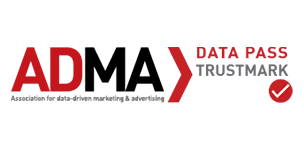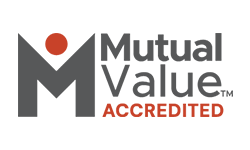It’s easy to get caught up in the excitement of buying a home, but, unlike most of your purchases, there will be costs in addition to the price tag that you will need to consider carefully. So, before you call your removalists here’s what to expect:
Stamp duty
Stamp duty is a tax that is levied by your state or territory government. The amount payable varies between states and territories and depends on the type and value of the property. Use our Stamp Duty Calculator to estimate the potential stamp duty liability for the property you wish to buy. In some states you will be required to pay stamp duty prior to the settlement of the property.
Lenders mortgage insurance
Lenders mortgage insurance (LMI) is applicable if you intend to borrow more than 80 percent of the property’s value as this is seen as a high-risk loan. LMI protects the lender, not you, in case you are unable to make your loan repayments. As the risk to the lender is reduced through LMI, they are more willing to accept a smaller deposit. This one-off cost is payable by the lender at settlement, therefore the LMI premium is usually included in your loan. The cost will depend on your lender, the value of the property and the size of your deposit. An example scenario could be that:
- the property is valued at $600,000;
- you have a 10 percent deposit saved;
- you need to borrow $540,000.
In this case, your upfront LMI premium would be $13,284 including GST (excluding stamp duty) according to Genworth.* While LMI can cost you thousands, it could be worth considering if you want to get on the property ladder sooner.
Building and pest inspections
These inspections may be a condition of sale and are essential for assessing the property for any significant building defects or damage caused by termites. Pest inspections can cost approximately $100-$300, while a building inspection for a four-bedroom house could be $400-$500. To save money, you might consider a combined building and pest inspection. Combined inspection costs vary between states and territories, averaging at $600, although inspections in regional areas tend to be cheaper than those in metro areas.
Loan fees
Depending on the type of home loan you choose, you may be required to pay an application fee, also known as an establishment fee, to set up the loan. These fees will vary between lenders, but you can expect to pay $300-$1,000. If you take out a home loan package, you may be required to pay a smaller amount, but this would likely be for an ongoing annual or monthly fee. These fees are usually outlined in the loan’s key fact sheet and your loan contract.
Legal and conveyancing fees
These costs involve the preparation of the official documentation for your mortgage by a licensed conveyancer or solicitor. The average cost for conveyancing is $1,800, but fees can range from $600 to $2,200 and include but are not limited to:
- Title search
- Mortgage registration fee
- Mortgage transfer fee
- Third party costs payable to the council and utilities companies
- Statement of Adjustments and Settlement Statement
- Notice of Acquisition and a cheque for payment of any outstanding levies
Council and water rates
Once you have purchased the property, you may be required to pay the vendor for the relevant portion of the council and water rates. This amount may have been included in the purchase price and should be discussed with your real estate agent.
Home and contents insurance
Home and contents insurance costs will vary depending on the property and it is always best to compare policies. In some cases, conditional pre-approval requires buyers to purchase insurance prior to settlement. Your conveyancer or solicitor can confirm when you will become legally responsible for your home. You may also be required to provide your lender with a Certificate of Currency identifying them as the mortgagee or interested party in the insurance policy.
Moving and connection costs
Removalist fees will depend on the size of the job and the number of removalists required. For example, you can expect to pay $100 per hour for two removalists. Remember that you will need to arrange for your internet and utilities, such as electricity and gas, to be connected. These costs will vary depending on the provider and you may be able to negotiate. Find out if it is possible to request that the vendors leave the utilities connected so you can transfer the details into your name on the settlement date.
Renovation and decorating costs
Your home may only require a few simple fixes or a lick of paint to freshen it up and make it your own. However, if you are a keen fixer-upper or have been inspired by TV reno shows, you may have chosen a project property. For an extensive renovation project, it is important that you thoroughly research the costs. It's a good idea to add 20 percent to your estimate to ensure that you have a contingency fund. Alternatively, consider adding the estimated costs to your home loan.
We’re ready to help you
Whatever type of home you choose, we’re ready to help you reach your home ownership goal. G&C Mutual Bank is proud to be a participant lender in the Australian Government’s Home Guarantee Scheme, and we’re delighted to be helping a new generation of Australians purchase their first home.
Our team will always go the extra mile for our members. As a member owned bank, our members’ interests come first and will never be in conflict with shareholders’ interests. We aim to return our profits to our members via better rates and products that offer flexibility. We’re a bank that puts you first; a bank you can trust.
Contact us to find out more about the G&C Mutual Bank difference and how we can help you.
*Source: Genworth's LMI premium estimator using the scenario of a first home buyer with a loan term of up to 30 years.




